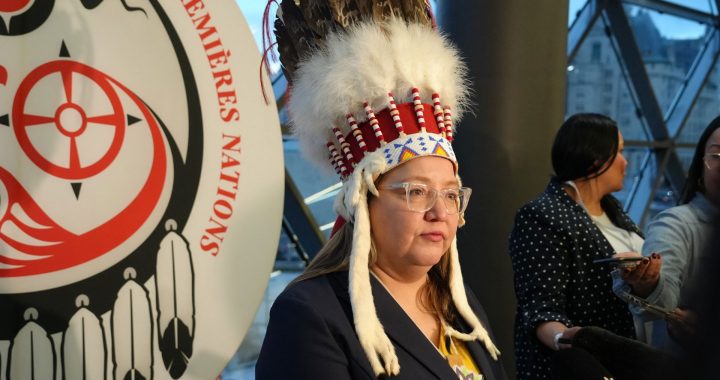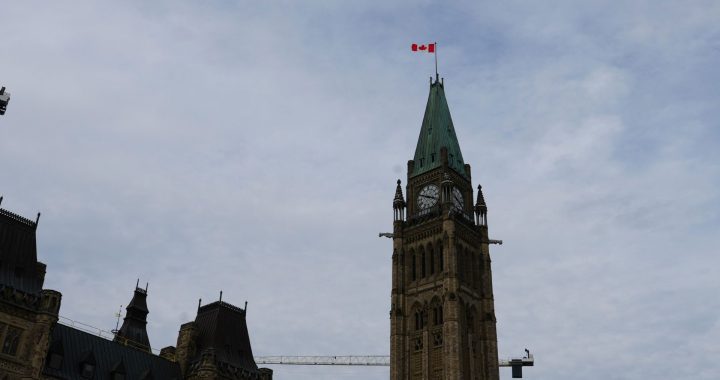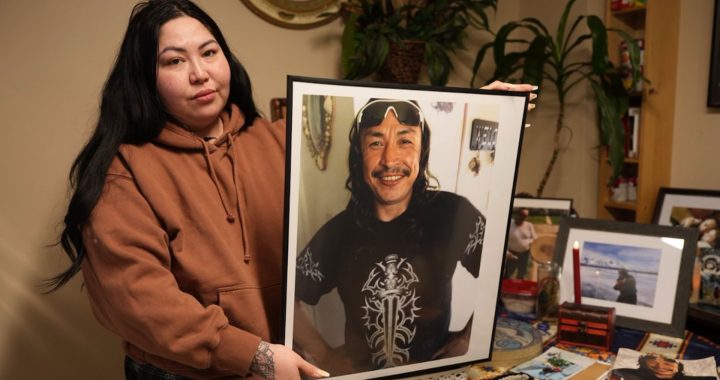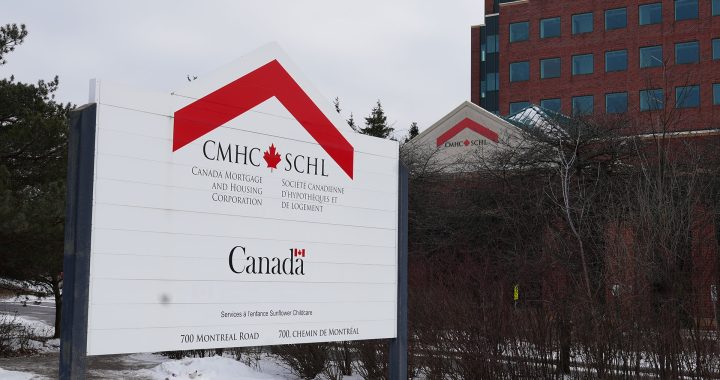Chiefs want final approval on expected federal First Nations education legislation before House of Commons tabling
While chiefs gather this week at the Metro Toronto Convention Centre to vote for the next national chief of the Assembly of First Nations they will also be laying out the agenda for Wednesday’s winner to push.
(AFN national chief candidate George Stanley’s camp strategizes in their warroom Monday evening. APTN/Photo)
APTN National News
TORONTO–While chiefs gather this week at the Metro Toronto Convention Centre to vote for the next national chief of the Assembly of First Nations they will also be laying out the agenda for Wednesday’s winner to push.
Chiefs are expected to debate a full slate of resolutions on Thursday to set the mandate for the next national chief. One resolution, if passed, would demand the Conservative government present planned legislation on First Nations education to the chiefs for approval before it gets tabled in the House of Commons.
The Conservative government is expected to introduce legislation impacting K to 12 educations on reserve in response to a report from an expert panel jointly backed by the AFN and the Conservative government.
Chiefs from regions like Saskatchewan, Ontario and Quebec withdrew from participating in the panel arguing the mandate was too narrow and did not reflect their demands.
“Any draft legislation be presented to First Nations, including for ratification by the chiefs in assembly,” states the resolution, proposed by Tyrone McNeil, a proxy for Union Bar First Nation, B.C., and Eel Ground First Nation Chief George Ginnish from New Brunswick.
The resolution also calls on the government to increase funding for education and respect the right of First Nations to develop their own standards and curriculum for reserve schools.
Chiefs will also be debating a resolution that would direct the new AFN national chief to “investigate” why First Nations were not consulted before the Conservative government cut funding to health services along with regional and tribal organizations.
“Direct the AFN to challenge how the federal government can justify their own Indian health policy of 1979 and their recent commitment to work with First Nations at the January 2012 Crown Gathering,” said the resolution, proposed by Lennox Island First Nation Chief Darlene Bernard, from Prince Edward Island, and St. Mary’s First Nation Chief Candace Paul, from New Brunswick.
The Tsilhqot’in nation is also seeking the AFN support in their continued opposition to a proposed gold and copper mine in their territory in British Columbia’s interior. Mining firm Taseko’s proposed Prosperity mine was rejected once by the Conservative government, but the company was allowed to resubmit a revised proposal claiming that the project would no longer destroy pristine Fish Lake.
The Tsilhqot’in, however, say the mine still poses a major environmental threat to their territory.
“Call upon the government of Canada to maintain its honour and integrity by rejecting the new Prosperity project with prejudice and recognize the project as an example of irresponsible development,” says the resolution proposed by Tl’etinqox-t’in Chief Joe Alphonse and Xeni Gwet’in First Nation Chief Marilyn Baptiste.
Chiefs are expected to debate at least 24 resolutions on Thursday.










